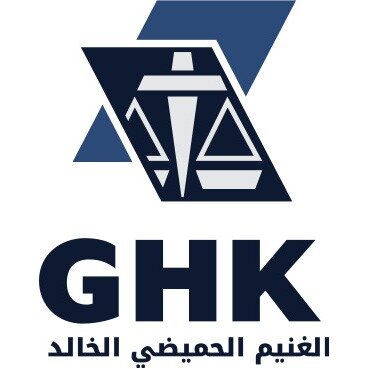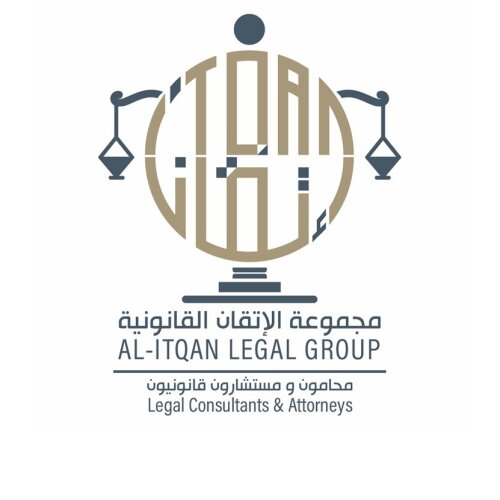Best Renewable & Alternative Energy Lawyers in Kuwait City
Share your needs with us, get contacted by law firms.
Free. Takes 2 min.
List of the best lawyers in Kuwait City, Kuwait
About Renewable & Alternative Energy Law in Kuwait City, Kuwait
Kuwait City, as the capital of Kuwait, is experiencing growing interest in renewable and alternative energy sources. Traditionally reliant on oil, Kuwait is taking important steps towards integrating solar, wind, and other sustainable energy solutions into its national grid. This shift aligns with the country’s vision to diversify its energy portfolio, reduce carbon emissions, and meet global environmental commitments. Renewable and alternative energy law in Kuwait City covers regulations, incentives, licensing, and compliance standards necessary to develop and operate renewable energy projects within the city and the wider state of Kuwait.
Why You May Need a Lawyer
Navigating the legal landscape of renewable and alternative energy can be complex, especially given Kuwait’s evolving regulatory environment. You may require legal assistance for several reasons, including:
- Understanding investment regulations and incentives for renewable energy projects
- Obtaining permits and licenses to build or operate energy facilities
- Negotiating power purchase agreements or contracts with governmental and private entities
- Ensuring compliance with environmental and safety standards
- Protecting intellectual property related to renewable energy technologies
- Addressing land use, zoning, or environmental impact concerns
- Handling disputes or litigation involving joint ventures or partnerships in the energy sector
- Understanding the implications of government reforms or policy changes affecting the industry
A qualified lawyer can provide tailored advice, help navigate bureaucratic procedures, and safeguard your rights and interests throughout your renewable energy project.
Local Laws Overview
The legal framework governing renewable and alternative energy in Kuwait City is shaped by both national energy policies and municipal regulations. While Kuwait’s energy sector is heavily regulated by the government, recent years have seen an increase in incentives and pilot projects aimed at integrating renewable sources.
Key regulations relevant to renewable energy include:
- The Kuwait Vision 2035 framework, which aims to increase renewable energy use in the national grid
- Licensing and permit requirements for constructing, operating, or investing in renewable energy facilities, issued by government bodies such as the Ministry of Electricity and Water
- Incentives or subsidies for private sector investment in alternative energy and clean technologies
- Environmental impact assessment obligations for new energy projects, overseen by the Environment Public Authority (EPA)
- Regulations concerning grid connection, power sale agreements, and infrastructure sharing
- Land allocation and zoning rules for renewable energy installations
Staying up to date with policy changes is essential since Kuwait’s approach to renewable energy is evolving. Consulting with a local lawyer ensures compliance and maximizes the benefits of participating in the emerging energy sector.
Frequently Asked Questions
What types of renewable energy are commonly promoted in Kuwait City?
Solar and wind energy are the most commonly promoted renewable sources in Kuwait City, given the country’s natural suitability for both. There is also interest in exploring geothermal and waste-to-energy solutions.
Are there incentives for investing in renewable energy projects?
Yes, the Kuwaiti government has introduced policies and pilot programs that provide incentives for investment in renewable energy, particularly solar power. These may include tax relief, land grants, or assistance with infrastructure.
How do I obtain permits to construct a renewable energy facility?
You will need to apply for specific permits and licenses through the Ministry of Electricity and Water and possibly the Environment Public Authority, depending on the nature and location of your project. Legal counsel can help streamline this process.
What are the environmental regulations for renewable energy projects?
All energy projects must comply with environmental standards set by the Environment Public Authority. Environmental impact assessments may be required before construction can begin.
Can foreign investors participate in Kuwait’s renewable energy sector?
Foreign investment is permitted with certain restrictions. Joint ventures with local partners are common, and specific approval from regulatory authorities may be necessary.
What legal risks should I consider when starting a renewable energy business?
Legal risks include non-compliance with permit requirements, contractual disputes, changes in governmental policy, land use issues, and potential environmental liabilities. A lawyer can help you identify and manage these risks.
Is it possible to sell renewable energy to the national grid?
Yes, selling energy to the grid is possible under certain conditions. This requires formal agreements such as power purchase agreements, subject to approval by relevant authorities.
What intellectual property rights apply to renewable energy technology?
Patents, trademarks, and trade secrets can protect technological innovations. Registration with the Kuwait Industrial Property Office is important for enforcing these rights locally.
How are disputes typically resolved in the renewable energy sector?
Disputes are usually resolved through negotiation, mediation, or litigation in Kuwaiti courts. Arbitration is also an option if agreed upon by contract.
Who are the main regulatory bodies overseeing renewable energy in Kuwait?
Key regulators include the Ministry of Electricity and Water, Environment Public Authority, and Kuwait Municipality. Their roles cover everything from permits to environmental compliance.
Additional Resources
For anyone seeking more information or legal guidance regarding renewable and alternative energy in Kuwait City, these organizations and governmental bodies may be helpful:
- Ministry of Electricity and Water: Oversees all energy-related matters including renewable projects
- Environment Public Authority (EPA): Regulates environmental standards and impact assessments
- Public Authority for Industry: Supports industrial development and investment, including energy sectors
- Kuwait Institute for Scientific Research: Provides research and consultancy on renewable energy technologies
- Chamber of Commerce and Industry: Can provide business guidance and networking opportunities
Next Steps
If you are considering starting a renewable or alternative energy project in Kuwait City or require advice about existing operations, you should:
- Consult with a qualified lawyer who specializes in energy, environmental, or business law
- Prepare all necessary documents, including business plans, partnership agreements, and compliance records
- Liaise with relevant government authorities to understand permit and licensing requirements
- Stay informed about regulatory and policy changes that may affect your project
- Engage technical consultants for environmental assessments or necessary feasibility studies
A proactive legal approach will help you capitalize on opportunities in Kuwait’s growing renewable energy sector while avoiding unnecessary risks.
Lawzana helps you find the best lawyers and law firms in Kuwait City through a curated and pre-screened list of qualified legal professionals. Our platform offers rankings and detailed profiles of attorneys and law firms, allowing you to compare based on practice areas, including Renewable & Alternative Energy, experience, and client feedback.
Each profile includes a description of the firm's areas of practice, client reviews, team members and partners, year of establishment, spoken languages, office locations, contact information, social media presence, and any published articles or resources. Most firms on our platform speak English and are experienced in both local and international legal matters.
Get a quote from top-rated law firms in Kuwait City, Kuwait — quickly, securely, and without unnecessary hassle.
Disclaimer:
The information provided on this page is for general informational purposes only and does not constitute legal advice. While we strive to ensure the accuracy and relevance of the content, legal information may change over time, and interpretations of the law can vary. You should always consult with a qualified legal professional for advice specific to your situation.
We disclaim all liability for actions taken or not taken based on the content of this page. If you believe any information is incorrect or outdated, please contact us, and we will review and update it where appropriate.














